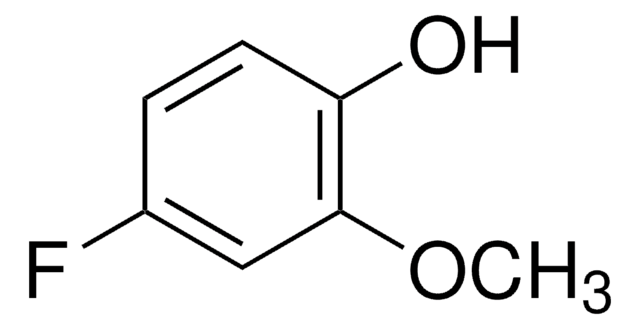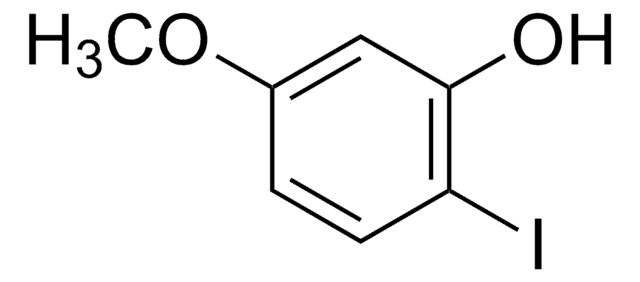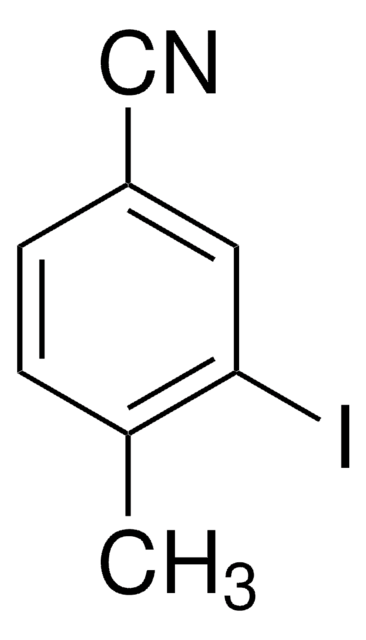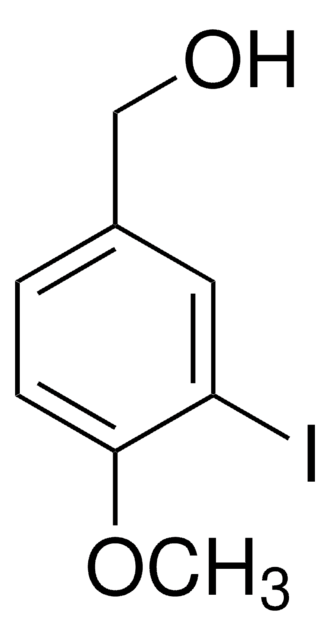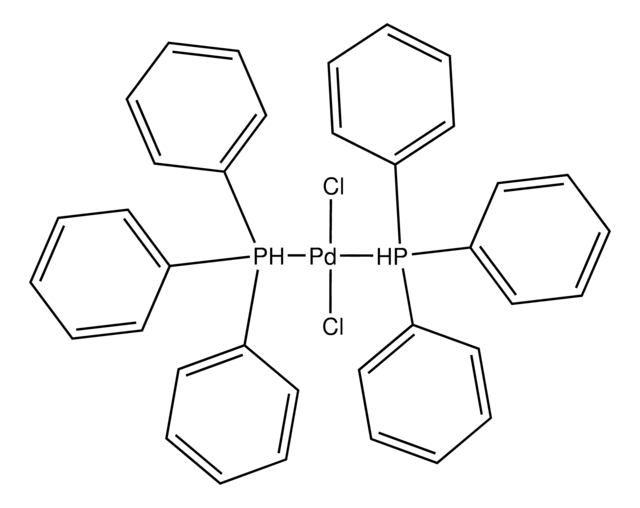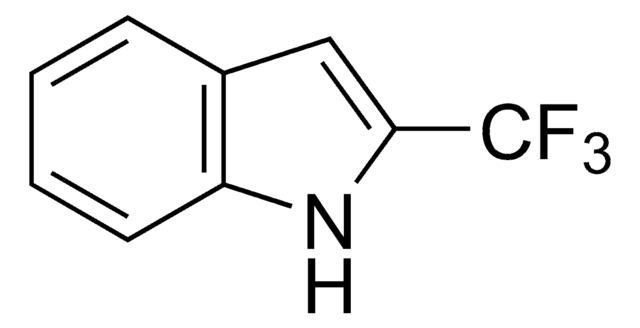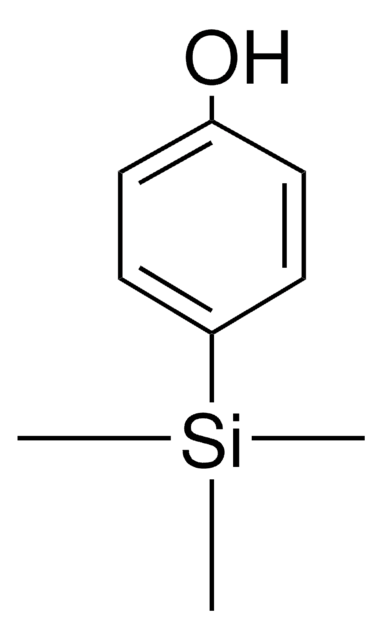All Photos(2)
About This Item
Empirical Formula (Hill Notation):
C7H7IO2
CAS Number:
Molecular Weight:
250.03
MDL number:
UNSPSC Code:
12352100
PubChem Substance ID:
NACRES:
NA.22
Recommended Products
Assay
97%
form
solid
mp
37-40 °C
storage temp.
2-8°C
SMILES string
COc1cc(I)ccc1O
InChI
1S/C7H7IO2/c1-10-7-4-5(8)2-3-6(7)9/h2-4,9H,1H3
InChI key
KJXYWMSTOWBZHC-UHFFFAOYSA-N
Signal Word
Danger
Hazard Statements
Precautionary Statements
Hazard Classifications
Acute Tox. 3 Oral - Aquatic Chronic 2 - Eye Dam. 1
Storage Class Code
6.1C - Combustible acute toxic Cat.3 / toxic compounds or compounds which causing chronic effects
WGK
WGK 3
Flash Point(F)
Not applicable
Flash Point(C)
Not applicable
Certificates of Analysis (COA)
Search for Certificates of Analysis (COA) by entering the products Lot/Batch Number. Lot and Batch Numbers can be found on a product’s label following the words ‘Lot’ or ‘Batch’.
Already Own This Product?
Find documentation for the products that you have recently purchased in the Document Library.
Ji Yeon Choi et al.
Neuromolecular medicine, 19(4), 555-570 (2017-10-21)
Alzheimer's disease (AD) is pathologically characterized by an excessive accumulation of amyloid-beta (Aβ) fibrils within the brain. We tested the anti-inflammatory and anti-amyloidogenic effects of (E)-2-methoxy-4-(3-(4-methoxyphenyl) prop-1-en-1-yl) phenol (MMPP), a selective signal transducer and activator of transcription 3 (STAT3) inhibitor.
Ji Yeon Choi et al.
International journal of molecular sciences, 20(11) (2019-05-31)
Neuroinflammation is implicated in dopaminergic neurodegeneration. We have previously demonstrated that (E)-2-methoxy-4-(3-(4-methoxyphenyl) prop-1-en-1-yl) phenol (MMPP), a selective signal transducer and activator of transcription 3 (STAT3) inhibitor, has anti-inflammatory properties in several inflammatory disease models. We investigated whether MMPP could protect
Florian Juhlke et al.
Frontiers in chemistry, 5, 120-120 (2018-01-13)
Chlorinated guaiacol derivatives are found in waste water of pulp mills using chlorine in the bleaching process of wood pulp. They can also be detected in fish tissue, possibly causing off-odors. To date, there is no systematic investigation on the
Our team of scientists has experience in all areas of research including Life Science, Material Science, Chemical Synthesis, Chromatography, Analytical and many others.
Contact Technical Service